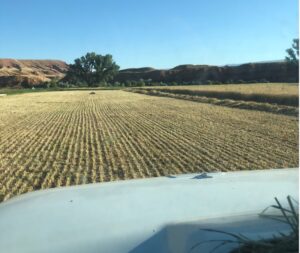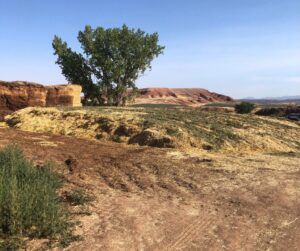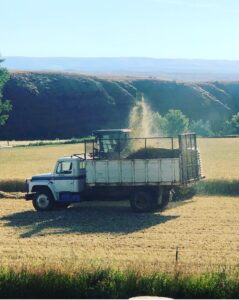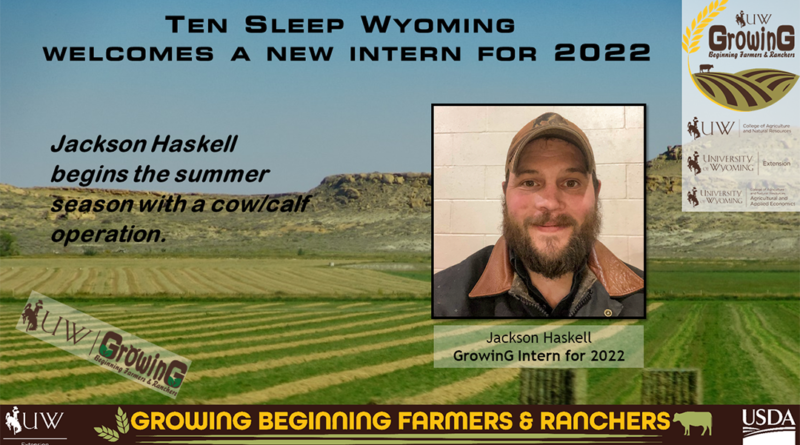Triticale Harvest For Silage
#bfrdpwy #aginternship #RightRisk

The main focus this week was harvesting triticale for silage; triticale is a type of grain. These grains are very hardy in the winter and actually grow back better after it has been grazed hard. My hosts have chosen to plant triticale during the fall and let it be grazed during the spring. This makes the growing season great and also allows for harvesting for silage.
One thing with harvesting this grain is it cannot be harvested at just any time, and there are a lot of details that go into turning it into silage. You want to have roughly 70% to 80% moisture in the plant. The reason for the moisture requirement is silage is formed through fermentation. Silage is a great feed stuff because you have a higher nutrition level, as well as you can store it for longer periods of time. I am a believer in using triticale from the dense nutrients to the ease of managing it and being able to effectively utilize it through multiple grazings, as well as being able to harvest it for winter feed.

During the triticale harvest, we had three pieces of equipment running, the first was the swather. Next was the forage harvester which is responsible for chopping the triticale. The last was a dump truck, which is what I was responsible for operating during the harvest. Having all of that equipment and operators working together requires consistent and effective communication. Even with the loud equipment, good communication allowed it [and us] to work in harmony.

After this week, I have to challenge the idea of a dump trump without air conditioning. I drove the dump truck with temperatures in the 80s and it didn’t have air conditioning. With the extreme heat, there were two choices: one was to have the windows up and be hot or to have the windows down and be covered in stalks. So, my challenge is to have zero dump trucks without air conditioning, this would help drivers in not losing 10 pounds of water weight in a day. All joking aside, I do not have a challenge from this week of work.

There are a few questions I do have from this week: what goes into balancing rations and how exact does it need to be, what’s the advantage in the feedlot of using a clean bunk feed method, and what do I plan to do with what I have learned this past week.
Submitted by: Jackson Haskell
Edited By: GrowinG Internship Team

